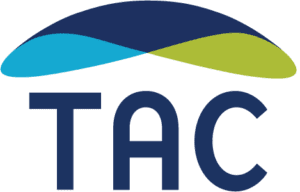Emerging from COVID-19: Lessons Learned and Future Directions for Rural Mental Health
As the pandemic continues to shift, the National Association for Rural Mental Health (NARMH) looks forward to engaging the rural mental health community in its 2021 conference: Emerging from COVID-19: Lessons Learned and Future Directions for Rural Mental Health. Conference chair and TAC Executive Director Kevin Martone notes: “We are pleased to announce that the conference will be held in a virtual format, and that we have organized a participant-friendly schedule that includes sessions running over a four-week period. This year’s conference registration fee will include a one-year individual level membership for new and returning individual level members — a terrific deal for individuals and organizations interested in rural mental health!”
Online conference sessions will be held on October 6, 13, 20 and 27, 2021; visit the conference web page for schedule information and more details as they are released.
Housing Problem Solving: A System-Wide Approach to Prevent or Quickly Resolve Homelessness
Housing Problem Solving (HPS) is an intervention designed to either prevent a household from experiencing homelessness, or immediately resolve homelessness for a household that has just entered shelter, transitional housing, or an unsheltered situation. Incorporating prevention, diversion, and rapid exit strategies, HPS helps households tap into their strengths and networks to find alternative housing arrangements, even if these are only temporary. HPS is a system-wide intervention that can be used for all populations, regardless of their perceived or real vulnerabilities. Prevention, diversion, rapid exit, and rapid rehousing are all integral parts of a local housing and homelessness crisis response system. Housing Problem Solving can lead to immediate housing alternatives and may also help inform longer-term housing plans and needs.
As part of TAC’s work with the United Way of Central Indiana and the Indianapolis-based Coalition for Homelessness Intervention and Prevention (CHIP) to plan for system-wide prevention and diversion activities, Associate Phil Allen and TAC contractor Naomi Sweitzer provided two 4-part virtual training series on HPS to local providers in January and April 2021. Each session was built on the foundational principles and philosophies of HPS: Housing First, Crisis Response/Resolution, Client Choice, Progressive Assistance, and Knowledge of Community Resources. Central to HPS is deep listening and partnering with the client to resolve their housing crisis. The series is designed to offer not only presentations, but also small and large interactive group activities in which participants can practice HPS skills, using sample cases to apply the principles listed above.
If your community or project is interested in learning more about Housing Problem Solving or hosting a training, please contact us for more information.
Racial Equity, Homelessness, and the Push for Vaccination
Whether living outside or in shelters during this past year-and-a-half, people experiencing homelessness have faced great risk both of COVID transmission and of serious illness or death from the virus. In response to this crisis, groundbreaking efforts have been mounted by national, state, and local leaders to minimize COVID devastation among people experiencing homelessness and the providers who serve them. Since the beginning of 2021, these efforts have expanded to include vaccination against the virus; it has been TAC’s privilege to participate in some of these campaigns, and especially to help providers incorporate racial equity principles and strategies into every aspect of this work.
Senior Associates LaMont Green and Ashley Mann-McLellan both served on the U.S. Department of Housing and Urban Development (HUD) policy team that focused on vaccine access for people experiencing homelessness — LaMont as the team’s equity subject matter expert, and Ashley as a policy contributor. This team provided guidance that helped community homelessness leaders to coordinate with public health agencies on increasing the rates of vaccination among people experiencing homelessness, and specifically to do so with a racial equity lens. In addition, TAC contractor John Gilvar was a member of HUD’s vaccine logistics team, helping to produce materials on how to set up vaccine events. Here in Boston, TAC worked with HUD to coordinate the Boston Public Health Commission and the Boston Health Care for the Homeless Program in delivering a presentation on their joint vaccine campaign, with a focus on how the process was led with racial equity. This presentation was shared with a huge audience on HUD’s weekly office hours.
And as the pandemic and its aftermath continue to evolve, TAC is coaching some of the nation’s largest cities on how to plan, coordinate, and fund ongoing vaccination efforts for people experiencing homelessness, as part of COVID relief and recovery efforts.
TAC Staff in Action
Staff Activities
Senior Associate LaMont Green was nominated and selected to join the board of the National Coalition for the Homeless; LaMont was also appointed by the Pierce County (WA) Council to serve on its Comprehensive Plan to End Homelessness Steering Committee; At the annual Law and Disability Conference sponsored by the New Jersey State Bar Foundation, Executive Director Kevin Martone spoke on the opening panel, “The Supportive Housing Landscape.”
Staff Transitions
Best wishes to TAC Senior Consultant David de Voursney, who is leaving us to serve as Director of the Division of Service and Systems Improvement at the Substance Abuse and Mental Health Services Administration’s (SAMHSA) Center for Mental Health Services. We will miss him, but we know he will do good work in this important role.


